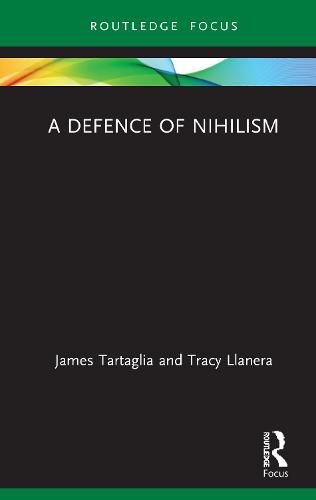Readings Newsletter
Become a Readings Member to make your shopping experience even easier.
Sign in or sign up for free!
You’re not far away from qualifying for FREE standard shipping within Australia
You’ve qualified for FREE standard shipping within Australia
The cart is loading…






This book offers a philosophical defence of nihilism. The authors argue that the concept of nihilism has been employed pejoratively by almost all philosophers and religious leaders to indicate a widespread cultural crisis of truth, meaning, or morals. Many religious believers think atheism leads to moral chaos (because it leads to nihilism), and atheists typically insist that we can make life meaningful through our own actions (thereby avoiding nihilism). In this way, both sides conflate the cosmic sense of meaning at stake with a social sense of meaning. This book charts a third course between extremist and alarmist views of nihilism. It casts doubt on the assumption that nihilism is something to fear, or a problem which human culture should overcome by way of seeking, discovering, or making meaning. In this way, the authors believe that a revised understanding of nihilism can help remove a significant barrier of misunderstanding between religious believers and atheists. A Defence of Nihilism will be of interest to scholars and students in philosophy, religion, and other disciplines who are interested in questions surrounding the meaning of life.
$9.00 standard shipping within Australia
FREE standard shipping within Australia for orders over $100.00
Express & International shipping calculated at checkout
Stock availability can be subject to change without notice. We recommend calling the shop or contacting our online team to check availability of low stock items. Please see our Shopping Online page for more details.
This book offers a philosophical defence of nihilism. The authors argue that the concept of nihilism has been employed pejoratively by almost all philosophers and religious leaders to indicate a widespread cultural crisis of truth, meaning, or morals. Many religious believers think atheism leads to moral chaos (because it leads to nihilism), and atheists typically insist that we can make life meaningful through our own actions (thereby avoiding nihilism). In this way, both sides conflate the cosmic sense of meaning at stake with a social sense of meaning. This book charts a third course between extremist and alarmist views of nihilism. It casts doubt on the assumption that nihilism is something to fear, or a problem which human culture should overcome by way of seeking, discovering, or making meaning. In this way, the authors believe that a revised understanding of nihilism can help remove a significant barrier of misunderstanding between religious believers and atheists. A Defence of Nihilism will be of interest to scholars and students in philosophy, religion, and other disciplines who are interested in questions surrounding the meaning of life.